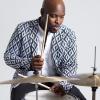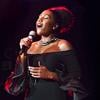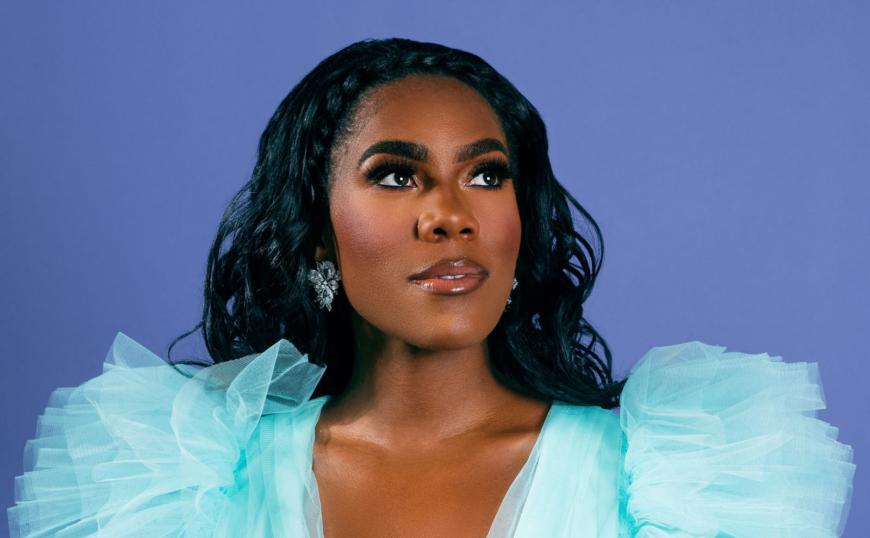
To many opera lovers, mezzo-soprano J’Nai Bridges inspires images of a rich-voiced and sensual Carmen whose energy extends way beyond the stage. But in Herbst Theatre on Friday night, April 28, an audience much smaller than those at Bridges’s Carmen performances discovered a more experimental and still-evolving facet of her artistry.
The mezzo joined a sextet of jazz pros for “Notes on Hope,” which also came to The Wallis in Beverly Hills on April 27 and the Mondavi Center at UC Davis on April 30. The seeds for the program were planted in San Francisco in June 2019, when, the day after a performance of Carmen at SF Opera, Bridges and her friend, jazz percussionist and current SF Performances artist-in-residence Ulysses Owens Jr., discussed how they might unite two of the world’s oldest and most essential musical instruments, the human voice and the drum.
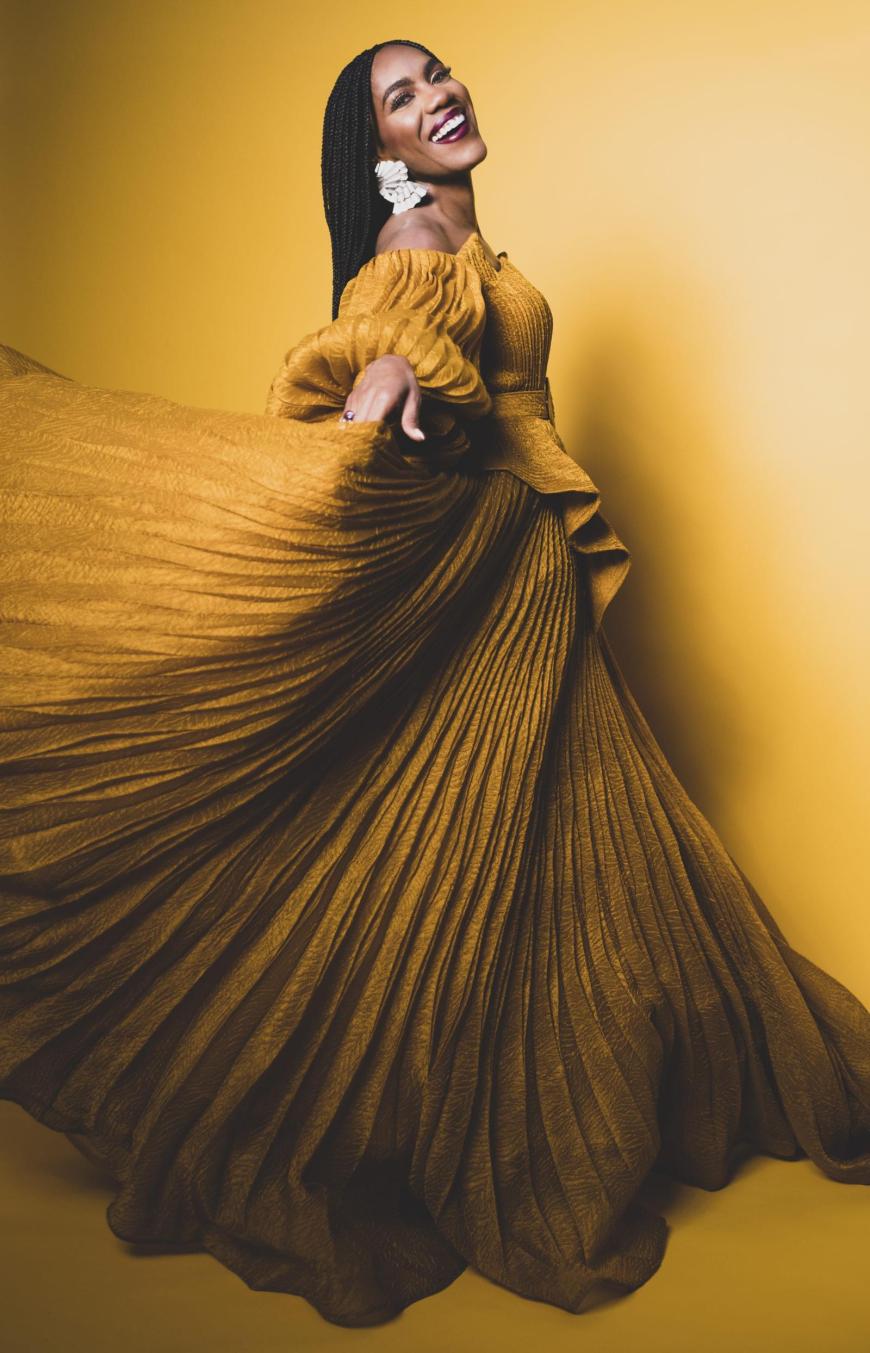
Bridges and Owens share a love for the artistry of great Black composers, including Duke Ellington and the formerly overlooked Florence Price. They have devised an amplified jazz-meets-classical program that explores the concept of hope in three parts, without intermission. First came a section titled “Divine Hope,” which, in Owens’s words, “focuses on the power of creation and is the conduit between hope and faith.” “The Crux of Hope” “references the most essential shift and point of the process: where difficult matters must be addressed so that hope is a possibility.” Finally, “Hope Fulfilled” “speaks to the reality that as we remain committed to the journey, we will experience the fulfillment of our efforts and hard work.” As spoken interludes made explicit, the evening explored the struggle of Black Americans to achieve recognition, honor, respect, and their full rights and freedoms.
Only part of the printed program made it to the stage. After “The Lord’s Prayer,” which Bridges and the ensemble presented in a jazz-light, opera-heavy manner, only “Heaven,” one of three listed pieces by Ellington, was performed. Similarly, in the evening’s second part, two intriguing pieces, Henri Duparc’s “L’invitation au voyage” and Louiguy’s “La vie en rose,” were omitted in favor of unlisted music.
It took Bridges some time to warm up. In both “The Lord’s Prayer” and “Heaven,” the prominent break between her low and middle registers brought to mind the register bump often overemphasized in acoustic recordings of early 20th-century contraltos and mezzos. In the second selection, as she tried to find the right way to play the music in her voice, she even sounded a bit blowsy. Thankfully, her rich sound soon evened out and was in full glory by concert’s end.
“This is a first for me,” Bridges explained during one of several long talk breaks. “I’ve never sung with a jazz ensemble before,” she said, adding, “Classical and jazz are much closer than we think.”
True, perhaps, but Bridges, who began her singing career in church, has not at this juncture developed an improvisational style that naturally lends itself to jazz interpretation. She is not Sarah Vaughan. Instead, she is a highly trained classical singer, deeply focused on vocal production (to the point of self-consciousness), who has yet to find her unique way in jazz.
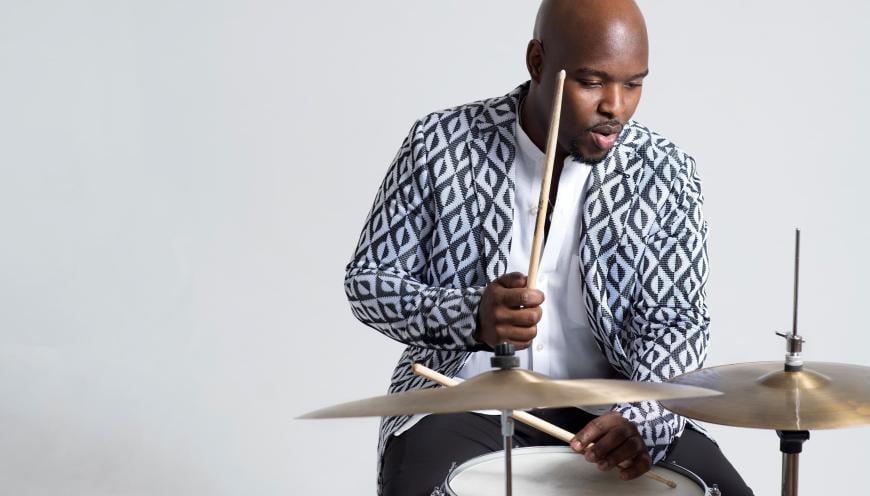
The results were mixed. She sounded most comfortable in “The Lord’s Prayer” and “There Is a Balm in Gilead,” where her gorgeous low range, along with her strength and faith, came to the fore. But in other selections, she and the ensemble tiptoed their way forward. Erik Satie’s “Je te veux,” for example, was a wish unfulfilled.
The high point came when the instrumental ensemble — bassist Reuben Rogers, pianist Ted Rosenthal, vibraphonist Jalen Baker, harpist Carol Robbins, guitarist David Rosenthal, and Owens — cut loose on its own for Geri Allen’s “Skin.” This was an exciting performance in which ensemble members took solo turns, often inspiring applause.
One addition to the program was “Always Believe,” an excerpt from Ted Rosenthal’s jazz opera Dear Erich, which premiered with New York City Opera in 2019. Bridges’s performance was rich and resonant, but the lyrics and music were over-sentimentalized and often cliched.
The vocal highlights included a spirited performance of Waldemar Henrique’s “Boi Bumba,” a jazzified version of Price’s “Hold Fast to Dreams” in which Bridges let loose, and a fabulous encore, the Habanera from Carmen. Finally, Bridges was so in her vocal and theatrical element that no amount of jazz improvisation could possibly upstage her.
The evening left me wanting to hear how Bridges might handle a full program of classical song. As for another round of jazz-meets-classical, perhaps in five years or so, after she has developed her own jazz style.


